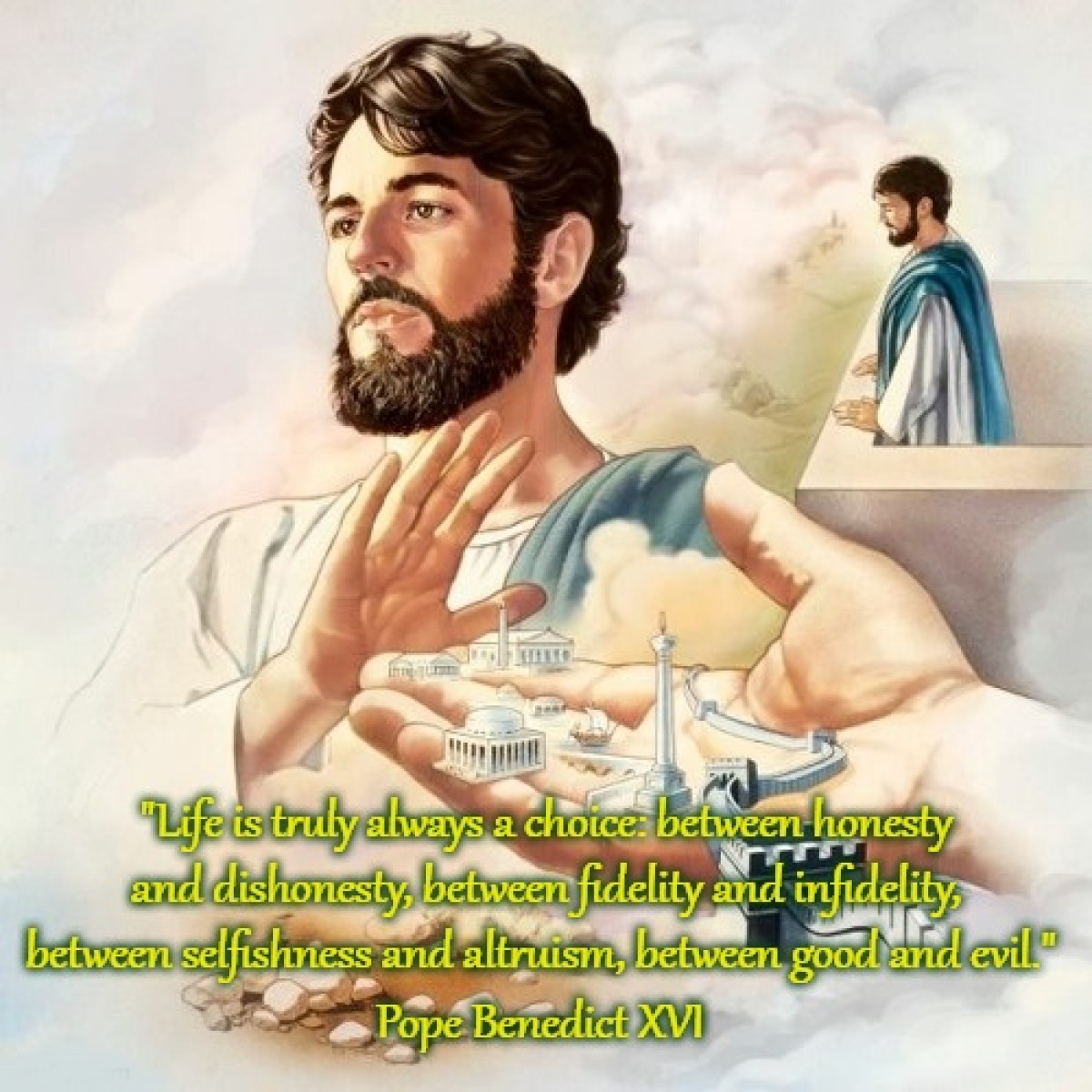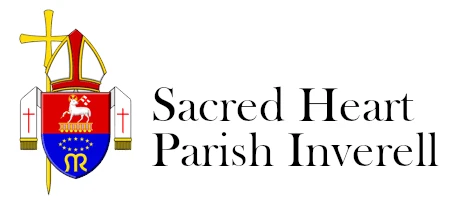25th Sunday in Ordinary Time (Year C) - 21 September 2025
21st September 2025

“It is not a sin to possess riches; but it is sinful to set our heart upon them, to seek them with eagerness, to place our happiness in them, or to employ unlawful means to acquire them.” - St John Baptist de la Salle
A reflection on today's scripture readings by Pope Benedict XVI from an excerpt of his homily given at St Clement's Square, Sunday, 23 September 2007:
"Through a parable that inspires in us a certain surprise since it speaks of a dishonest steward who is praised (cf. Lk 16: 1-13), a close look reveals that here the Lord has reserved a serious and particularly salutary teaching for us. As always, the Lord draws inspiration from the events of daily life: he tells of a steward who is on the point of being dismissed for dishonest management of his master's affairs and who, to assure a future for himself, cunningly seeks to come to an arrangement with his master's debtors. He is undoubtedly dishonest but clever: the Gospel does not present him to us as a model to follow in his dishonesty, but rather as an example to be imitated for his farsighted guile. The short parable ends, in fact, with these words: "The master commended the dishonest steward for his prudence" (Lk 16: 8).
"But what does Jesus wish to tell us with this parable? And with its surprising conclusion? The Evangelist follows the parable of the dishonest steward with a short series of sayings and recommendations on the relationship we must have with money and the goods of this earth. These short sentences are an invitation to a choice that presupposes a radical decision, a constant inner tension. Life is truly always a choice: between honesty and dishonesty, between fidelity and infidelity, between selfishness and altruism, between good and evil. The conclusion of this Gospel passage is incisive and peremptory: "No servant can serve two masters; for either he will hate the one and love the other, or he will be devoted to the one and despise the other". Ultimately, Jesus says, "You cannot serve God and mammon" (Lk 16: 13). Mammon is a term of Phoenician origin that calls to mind economic security and success in business; we might say that riches are shown as the idol to which everything is sacrificed in order to attain one's own material success; hence, this economic success becomes a person's true god. As a result, it is necessary to make a fundamental decision between God and mammon, it is necessary to choose between the logic of profit as the ultimate criterion for our action, and the logic of sharing and solidarity. If the logic of profit prevails, it widens the gap between the poor and the rich, as well as increasing the ruinous exploitation of the planet. On the other hand, when the logic of sharing and solidarity prevails, it is possible to correct the course and direct it to a fair development for the common good of all. Basically, it is a matter of choosing between selfishness and love, between justice and dishonesty and ultimately, between God and Satan. If loving Christ and one's brethren is not to be considered as something incidental and superficial but, rather, the true and ultimate purpose of our whole existence, it will be necessary to know how to make basic choices, to be prepared to make radical renouncements, if necessary even to the point of martyrdom. Today, as yesterday, Christian life demands the courage to go against the tide, to love like Jesus, who even went so far as to sacrifice himself on the Cross.
"We could then say, paraphrasing one of St Augustine's thoughts, that through earthly riches we must procure for ourselves those true and eternal riches: indeed, if people exist who are prepared to resort to every type of dishonesty to assure themselves an always unpredictable material well-being, how much more concerned we Christians must be to provide for our eternal happiness with the goods of this earth (cf. Discourses, 359, 10). Now, the only way of bringing our personal talents and abilities and the riches we possess to fruition for eternity is to share them with our brethren, thereby showing that we are good stewards of what God entrusts to us. Jesus said: "He who is faithful in a very little is faithful also in much; and he who is dishonest in a very little is dishonest also in much" (Lk 16: 10).
"Today, in the First Reading, the Prophet Amos speaks of the same fundamental decision to be made day by day. Using strong words, he stigmatizes a lifestyle typical of those who allow themselves to be absorbed by a selfish quest for profit in every possible form and which is expressed in the thirst for gain, contempt for the poor and their exploitation, to one's own advantage (cf. Am 8: 5). The Christian must energetically reject all this, opening his heart on the contrary to sentiments of authentic generosity. It must be generosity which, as the Apostle Paul exhorts in the Second Reading, is expressed in sincere love for all and is manifested in prayer. Actually, praying for others is a great act of charity. The Apostle invites us in the first place to pray for those who have tasks of responsibility in the civil community because, he explains, if they aspire to do good, positive consequences derive from their decisions, assuring peace and "a quiet and peaceable life, godly and respectful in every way" (I Tm 2: 2). Thus, may our prayer never be lacking, a spiritual contribution to building an Ecclesial Community that is faithful to Christ and to the construction of a society in which there is greater justice and solidarity.
"May the Holy Virgin watch over the sick, the elderly, children, everyone who feels lonely or neglected or who is in particular need. May Mary deliver us from the greed for riches and ensure that in raising to Heaven hands that are free and pure, we may glorify God with our whole life (cf. Collect). Amen!"


